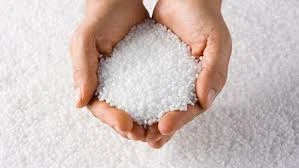Industrial Water Chemicals Importance, Types, and Applications
Industrial water chemicals play a critical role in various sectors, including manufacturing, agriculture, and water treatment facilities. These chemicals are essential for managing water quality, ensuring operational efficiency, and complying with environmental regulations. With increasing industrial demands and stricter regulations on water use and discharge, the significance of water chemicals continues to grow.
Importance of Industrial Water Chemicals
The principal role of industrial water chemicals is to treat water to make it suitable for various processes, such as cooling, steam generation, and product formulation. In many industries, water acts as a carrier for heat, chemicals, or waste. As such, its quality is paramount for operational efficiency. Contaminated water can lead to equipment corrosion, scaling, and fouling, resulting in increased maintenance costs and downtime.
Moreover, as industries face mounting pressure to reduce their environmental impact, the use of specialized chemicals is essential for waste treatment. This ensures that wastewater meets regulatory standards before being discharged back into the environment, safeguarding ecosystems and public health.
Types of Industrial Water Chemicals
Industrial water chemicals can be categorized into several types based on their functions
1. Coagulants and Flocculants These chemicals are used in the water treatment process to remove suspended solids. Coagulants, like alum and ferric chloride, destabilize particles in water, allowing them to clump together. Flocculants facilitate the formation of larger aggregates, or flocs, which can settle out of the water efficiently.
2. Biocides and Algaecides These chemicals are important for controlling microbial growth in cooling towers and water storage systems. Biocides kill harmful bacteria, fungi, and viruses, while algaecides specifically target algae blooms that can obstruct water systems and reduce circulation.
3. Corrosion Inhibitors These are applied to prevent the deterioration of metal surfaces that come into contact with water. They form a protective layer on metal surfaces, reducing the rate of corrosion and extending the lifespan of pipes and equipment.
4. Scale Inhibitors Scale formation can lead to significant operational challenges in many industrial processes. Scale inhibitors, often phosphonates or polyacrylic acids, are used to prevent the deposition of mineral scales, such as calcium carbonate or calcium sulfate, in pipes and heat exchangers.
industrial water chemicals

5. pH Adjusters Maintaining optimal pH levels is crucial in many industrial processes. Chemicals like sulfuric acid or sodium hydroxide are utilized to adjust pH levels, ensuring favorable conditions for chemical reactions and preventing equipment damage.
Applications of Industrial Water Chemicals
The applications of these chemicals are widespread across various industries
- Power Generation In power plants, water is used for cooling and steam generation. The proper management of water quality through chemical treatment is vital for efficient energy production and minimizing the environmental impact.
- Manufacturing Water is a key ingredient in many manufacturing processes, such as the production of plastics and chemicals. Controlling water quality contributes to product consistency and reduces the risk of contamination.
- Food and Beverage Industry Water treatment chemicals ensure that water used in food processing meets safety standards. They help in removing impurities, pathogens, and unwanted flavors, ensuring high-quality food products.
- Oil and Gas In the oil and gas sector, water is used in hydraulic fracturing and enhanced oil recovery. Water treatment chemicals improve water quality to ensure that these processes run smoothly and efficiently.
- Wastewater Treatment Municipal and industrial wastewater treatment facilities rely heavily on water chemicals to treat effluent and meet discharge regulations. The appropriate use of coagulants, flocculants, and biocides is essential for the effective treatment of wastewater.
Conclusion
The increasing complexity of industrial processes and the growing emphasis on sustainability make industrial water chemicals more critical than ever. By ensuring water quality, these chemicals not only enhance operational efficiency but also help industries meet environmental regulations, thereby promoting a sustainable future. As technology and regulations evolve, the development and application of more efficient and environmentally friendly water chemicals will remain a focal point for industries worldwide.

